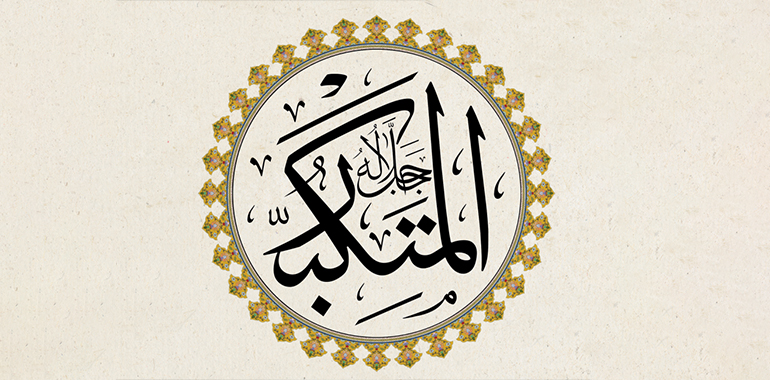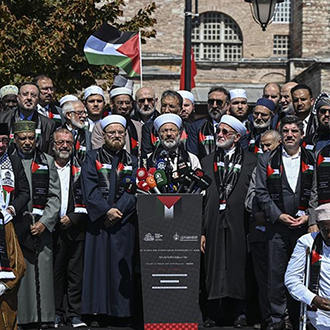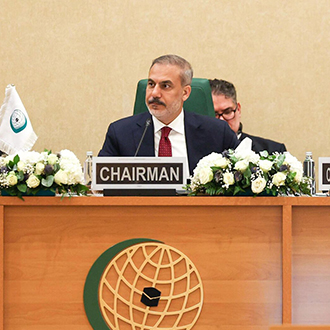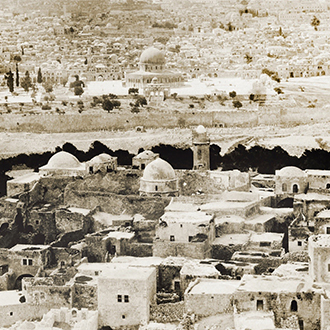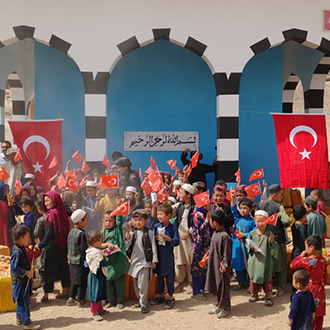The name al-Mutakabbir encompasses both positive and negative connotations of greatness. When used for human beings, it carries a negative meaning—namely, arrogance or acting with unjustified pride. However, when attributed to the Lord of all worlds, it conveys a positive meaning: the One Who manifests His absolute greatness and majesty. As you may recall, the name al-Jabbar follows a similar pattern. When applied to humans, it implies tyranny or oppression; yet, as one of the Names of Allah, it signifies “the One Whose will prevail over all”
To claim greatness is, in reality, for someone who is not truly great to present themselves as if they possess greatness—an act so unnatural and forced that earlier scholars referred to it as takalluf (pretension). As we all know from our own lives, greatness cannot be achieved through artificial effort; the small cannot become great through mere pretense. When the scholars examined the name al-Mutakabbir, they clarified that it does not denote blameworthy arrogance or pride but rather refers to Allah’s uniqueness (tafarud) and transcendence (tahassus) in majesty. That is, true greatness belongs solely to Allah, and He is unmatched in His exaltedness. His greatness is so far beyond human comprehension that all the expressions our tongues produce to describe majesty fall short before the immensity of His grandeur. We can only begin to imagine His greatness by contemplating His signs and creations. The Qur’an continually calls us to this reflection, even pointing to something as small as a mosquito as a sign of His majesty (Baqarah, 2:26).
Our Lord, by declaring al-Mutakabbir, a term that about humans signifies a blameworthy trait, as one of His own names (Hashr, 59:23), is in fact proclaiming that true greatness belongs solely to Him. In doing so, He warns that whoever arrogantly seeks greatness without right will be shown His true greatness. Thus, all false claims to superiority that could lead to oppression among people are preemptively nullified—before they even surface. Striving to elevate oneself is, in reality, an effort to bring about one’s own downfall. The disease known as arrogance (takabbur) prevents noble virtues from taking root in one’s character. Just as rain descending from the sky does not settle on elevated surfaces but flows to lowlands, divine mercy likewise pours into hearts that are humble and receptive. And in passing over those high places, that mercy often carries with it the most precious soil to enrich the lands below.
A person may, by Allah’s decree, attain a level of power or status in this world that is not granted to others. However, if this leads them to arrogance, viewing themselves as superior and self-sufficient, then that is precisely where their downfall begins. This sense of independence and pride closes the human ego to any form of admonition, resulting in a sealed heart (see A‘raf, 7:146; Ghafir, 40:35). Yet, when rightly understood, the divine attribute of kibriya’ (majesty), which belongs solely to our Lord, becomes the most powerful deterrent against human arrogance and rebellion.



